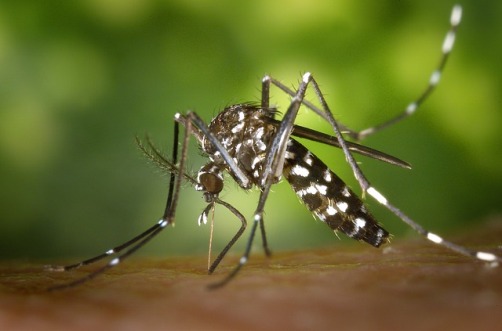Opening Hours:
MONDAY TO SATURDAY
6.00 p.m. to 10.00 p.m.
SUNDAY
By appointments
PATIENT EDUCATION
BLOGS > Dengue

Posted on:July.15, 2018 Posted by: Admin
Archives :
Dengue
What is Dengue Fever?
Dengue fever is a disease caused by bite of mosquito (specific breed Aedes Aegypti) infected by the dengue virus. It is a painful, disabling disease, with the severity of pain similar to that of bones breaking – hence it is also known as ‘Breakbone’ fever. Human being develops disease after 5 – 6 days of being bitten by an infective mosquito. It occurs in two forms: Classical Dengue and Dengue Haemorrhagic Fever (DHF) which is life threatening
What are the Symptoms of Dengue Fever?
The major symptoms of dengue fever include sudden high fever (as high as 40 °C or 104 °F), chills, severe headache (usually behind the eyes), muscle ache and joint pain, nausea, vomiting, flushed skin and in some cases, a skin rash similar to measles. Dengue fever symptoms may be mild initially and mistaken for a flu, cold or a viral infection. In rare cases, dengue fever may develop into a more life threatening form known as dengue hemorrhagic fever, which results in bleeding, decreased blood platelet count or thrombocytopenia, blood plasma leakage or the more fatal dengue shock syndrome, which causes dangerously low blood pressure.
How is Dengue Fever Caused and Spread?
Dengue fever and dengue hemorrhagic fever spread from human-to-mosquito-to-human by the bite of mosquitoes carrying the dengue virus. This mosquito breeds in stagnant waters and usually bites during daylight hours. The virus circulates in the blood for 2-7 days after a person is infected, during which time a mosquito biting the person would acquire it and in turn bites and infects another person. The symptoms usually start within 4 to 7 days of infection, and may last from 7 or 10 days.
What are the Complications of Dengue Fever?
Dengue fever may rarely develop into more dangerous forms such as dengue hemorrhagic fever or dengue shock syndrome, which may lead to the development of life-threatening symptoms. The complications associated with Dengue Fever/Dengue Haemorrhagic Fever usually appear between the third and fifth day of illness. Some of the complications caused by the disease include:
• Severe dehydration
• Continuous bleeding (Low platelets, due to which clotting of blood doesn’t occur)
• Blood pressure may go dangerously low
• Damage to the brain due to bleeding, seizures or encephalitis
How Do You Diagnose Dengue Fever?
When you have symptoms as discussed, approach physician/pediatrician and let them assess and investigate if they need to as dengue can simulate other diseases too as discussed above. Diagnosis of dengue infection can be done by the following methods:
• Isolating the Viral Antigen (NS1) from blood sample from patients within 5 days of appearance of symptoms.
• Detection of specific antibodies (IgG and/or IgM) 6 days after onset of symptoms.
How Do You Treat Dengue Fever?
Since there are no known antiviral drugs to kill dengue virus, dengue fever treatment or management mainly involves plenty of fluids (water, soup, milk, juice), analgesia (pain relieve) and antipyretic (fever relieve) for both paracetamol is safest. Patient should consume normal diet and as many fruits possible to improve immunity as they have high levels of antioxidants. The patient should take complete rest. In the case of more severe forms of dengue, such as dengue hemorrhagic disease or dengue shock syndrome, the patient must be admitted to a hospital immediately and given proper care. The mortality rate of a severe dengue patient without hospitalization is higher by about 50 percent.
How Do You Prevent Dengue Fever?
Following certain basic steps is really the most effective way to prevent and fight dengue. Since the only way to get dengue is from a mosquito bite, the best way to prevent it is to avoid mosquitoes and prevent from mosquito bites. Few effective measures are described below:
• Mosquito breeds in stagnant water. Hence it is advisable to avoid stagnant water and pools on the ground, in flowerpots, buckets, barrels etc., in and around the neighbourhood and the house. Water should always be stored in closed containers.
• Bleaching powder may be used in water sources that are not meant for drinking, as it will prevent the development of mosquito eggs.
• Avoid being bitten by the mosquitoes by keeping them away by using mosquito repellents, repellent plants (like marigold, lemon Balm, Basil, lavender, peppermint, garlic, rosemary, clove tree, floss flower) whether indoors or outdoors.
• To avoid mosquitoes, it is best to attach mosquito nets to all windows.
• Another way is to wear long-sleeved shirts, pants, socks, and shoes or boots when spending time outdoors.
• Mosquitoes are attracted to dark coloured clothing; therefore it is better to wear bright and light coloured clothes.
• Avoid strong perfumes or scented body lotions, as mosquitoes are drawn to strong odours.





